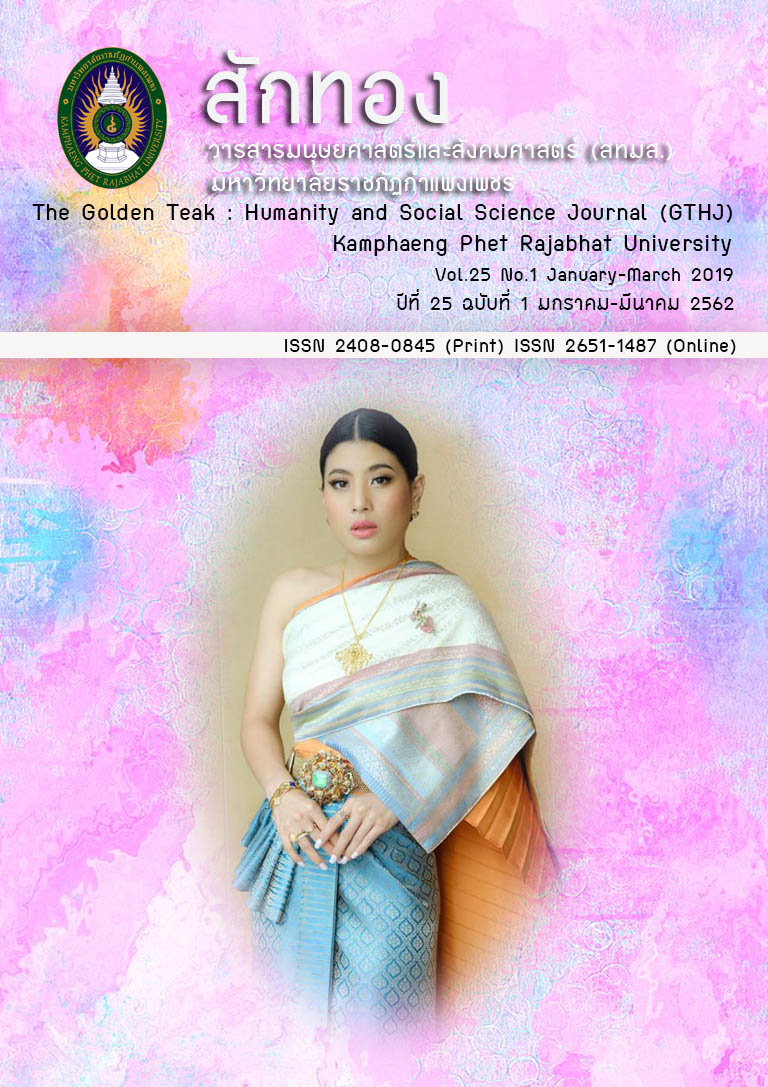Guidelines of Business Administration on Buddhist Ethics
Main Article Content
Abstract
The objective of this paper was to study the guidelines of business on Buddhist ethics. The study result revealed that the guidelines of business on Buddhist ethics must start from human the beginning in all the fundamental factors are: (1) population or people, (2) natural resources, (3) capital, and (4) knowledge and expertise in production of business. In summary, people and objects mean people with expertise which it is a matter of people, but natural resources and capital are a matter of object. Businesses must start with first-person development to quality, object development is easy. On the Right Livelihood, there are two categories to consider: (1) wrong livelihood (wrong trade)and (2) right livelihood, abstain improper action (the five precepts). According to Buddhist ethics, business administration must adhere to the principles of qualities of a successful businessman with three objects:(1) shrewd, (2) capable of administering business, (3) having good credit rating on fourfold division of money with two parts for business from four parts and must practice the principles for supporting the business to be successful, for example, the four noble sentiments, the four objects of sympathy, there are principles of kindly treatment between Manufacturer, consumers, employer and employee which appears in the six directions, it is servants and workmen as the nadir etc. the guidelines of business on Buddhist ethics can help or support the placing foundation for prosperity in society as a system to unites of the moral of the community. It is a direct moral foundation for society to achieve the society’s goals of the loving-kindness, generosity and sharing on the basis of achievements, values and three benefits in life; self, others, and living together in society.
Article Details
บทความที่ได้รับการตีพิมพ์เป็นลิขสิทธิ์ของวารสาร สักทอง : วารสารมนุษยศาสตร์และสังคมศาสตร์ สถาบันวิจัยและพัฒนา มหาวิทยาลับราชภัฏกำแพงเพชร
ข้อคิดเห็นใดๆ ที่ปรากฎในวารสารเป็นวรรณกรรมของผู้เขียนโดยเฉพาะ ซึ่งมหาวิทยาลัยราชภัฏกำแพงเพชรและบรรณาธิการไม่จำเป็นต้องเห็นด้วย
References
Division of Religious Studies, Ministry of Education. (1999). Ethical Study Guide. Bangkok : Religion.
Phra Kriangkrai, Wudhothot (Suwankam). (2014). The study of principles for employers and employees. Master's thesis, Master of Arts, Graduate School Mahachulalongkornrajavidyalaya University.
Phradhammakosarn (Prayoon Thammachitto). (2006). Buddhist Method of Management. Bangkok : Mahachulalongkornrajavidyalaya.
Phradhammapitaka (P.A. Payutto). (1999). Buddhism, people and society development. Bangkok : Religion.
______. (2000). Buddhist Dictionary Dharma edition. Bangkok : Mahachulalongkornrajavidyalaya University
Phraphromkunaporn (P.A.Payutto). (2004). Life Charter Buddhist ethics for a good life. Nakhon Pathom : Rakangthong.
Mahachulalongkornrajavidyalaya University. (1996). Thai Buddhist Scriptures, Mahachulalongkornrajavidyalaya. Bangkok : Mahachulalongkornrajavidyalaya University.
Wiratnipawan, W. (2009). Concepts and meanings of administration and management. Bangkok : Sukhothai Thammathirat Open University.
Refinedprasert, S. (2010). Executive Leadership By applying according to the Sappurisadhamma 7: a case study of True Corporation Public Company Limited. Master of Buddhist thesis College Mahachulalongkornrajavidyalaya University.


